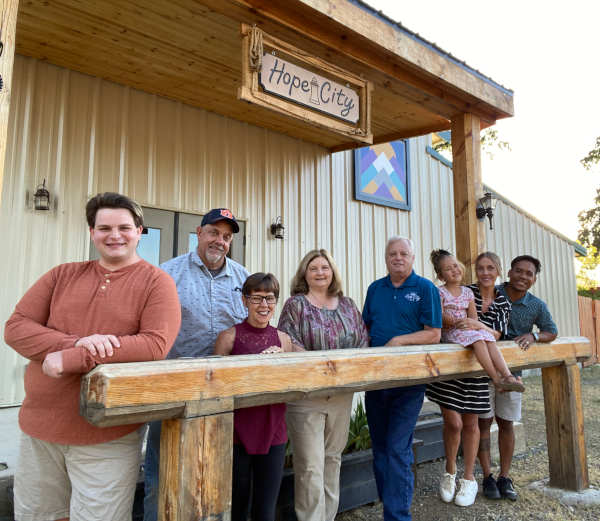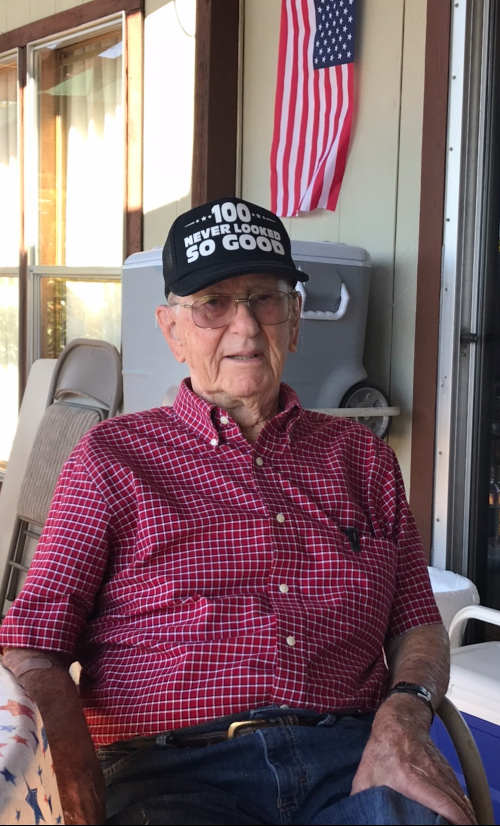- Elizabeth Larson
- Posted On
Board of Supervisors grants appeal of cannabis project over faulty environmental document
However, in granting the appeal of the We Grow LLC project permit filed by concerned neighbors, the board said it was doing so without prejudice.
That will allow owner Zarina Otchkova the chance to resubmit the proposal, which her consultant indicated she planned to do.
In early 2020, Otchkova purchased 309 acres at 16750 Herrington Road, 17610 Sandy Road and 19678 Stinson Road in Middletown.
She went to the Lake County Planning Commission in April and received a vote of approval for a major use permit for a project that includes nine acres of cultivation, 35 greenhouses, four 50-foot by 100-foot drying buildings, a 200-square-foot shed, four 2,500-gallon water tanks and fencing, as Lake County News has reported.
By the following week, an appeal had been filed by a group of neighbors, some of them on hand for the board meeting on Tuesday morning.
However, while the appellants and their supporters showed up with signs ready to protest, they were caught off guard by what happened next.
When the hearing began, Board Chair Bruno Sabatier gave the floor to Scott De Leon, the county’s Community Development, Water Resources and Public Works director.
“This is a very large project, and it’s certainly the subject of a great deal of public interest,” as evidenced by attendance at Tuesday’s hearing, said De Leon, who attended the meeting from his office via Zoom.
“We’ve been diligent in our evaluation of the appeal and the questions raised about the environmental analysis for this project,” he said.
Based on that review, Community Development was modifying its recommendations to the board because De Leon said staff had discovered “procedural errors” that have rendered the project’s initial environmental study defective.
As a result, De Leon said the project could not move forward as presented.
He explained that changes were made to the project during the review process and the potential impacts to the environment that could result from those changes were not considered.
Due to those factors, he said he and his staff recommended the board grant the appeal and deny the project without prejudice, a statement interrupted by applause from the socially distanced audience in the board chambers.
De Leon said they expected the applicant would reapply, which they have the right to do, and staff will make revisions to the environmental analysis for the modified site plan and in consideration of concerns raised by the public.
Sabatier asked County Counsel Anita Grant to explain the meaning of denial without prejudice.
Grant said that it will allow the reapplication without waiting a standard six months. She said the board was prevented from making their required finding for the project in order to grant or deny a permit because the California Environmental Quality Act — or CEQA — analysis was defective.
“You cannot rely upon it in order to make the decisions that you have to make,” she said of the analysis.
“It is not just a choice, it is effectively the only reasonable choice you can make, which is to grant the appeal and deny the use permit without prejudice,” Grant added.
She said that will allow the applicant to reapply and allow the department to take the necessary corrective action as to the CEQA analysis, which has to be done before either the planning commission can hear it or the board can move forward.
Community members outline concerns
The board moved forward with allowing comments from the concerned community members who were in attendance either in the board chambers or on Zoom.
Hidden Valley Lake resident Jim Ryan, who lives on Greenridge Road directly below the project, said the concerns will remain in a month or a year. He said the proximity of large commercial cannabis grows to major residential areas is what needs to be addressed.
“We don’t want it to be a continuing issue, but it may be,” he said, adding a main issue is water.
Ryan added the neighbors were all in shock about the property’s suggested use.
Dan Levine, who lives in the nearby Shadow Hills Subdivision, told the board, “The negative impacts from this project would have been very substantial and quite numerous.”
Like Ryan, Levine said the problems won’t go away once We Grow reapplies.
“Please don’t trade our environment and our quality of life for a few extra tax dollars,” Levine said.
Scott Nagelson, whose family owns the property adjacent to the We Grow site, said he was grateful for what transpired at the meeting.
“We’re not gonna go away. We will be back if they reapply. We are all adamant that this is not appropriate for our neighborhood,” he said.
Jesse Cude, a representative of the appellants and a Shadow Hills Subdivision resident, asked the board to uphold the appeal with prejudice and to refund the appeal fees — which county documents showed totaled $1,136.30 — because he said they shouldn’t have to pay for the mistakes of others.
He also asked them to stop allowing new permits for any growing — whether it be cannabis for winegrapes — due to the drought.
Sufyan Hamouda, We Grow’s consultant, offered brief comments during the meeting. He said they received an email from Community Development on Monday letting them know the department was changing its recommendation to the board on Tuesday due to procedural oversight and the CEQA document that was submitted for this project.
“We do agree with the staff’s new recommendations,” said Hamouda.
Hamouda said he’d spoken with his client and will work closely with Community Development to make sure the amended CEQA document is accurate for the proposed project, which he indicated they intended to pursue.
At one point, Sabatier responded to criticisms from speakers about the planning commission — including assertions that they didn’t care about the community — noting that the commissioners are shackled by the rules and regulations the board created.
Attending remotely, Bart Levenson spoke about how the planning commission had listened to solid testimony about concerns with We Grow’s plans but concluded with its members saying they had no reason to deny the project.
She said the old rules do not apply, considering issues with droughts and fires. If the commission is shackled by the rules, “It is urgent that those rules be reexamined. It’s not OK to just say, ‘The rules are the rules.’ Not anymore.”
Donna Mackiewicz, representing the Redbud Audubon Audubon Society, pointed to other deficiencies with the environmental study of the project.
She said not all of the land had been fully surveyed. The biological report said the property is home to only 10 species of bird. Yet, Mackiewicz said she walked the property perimeter for a few hours on Sunday and saw 40 bird species.
Shannon Williams told the board about the unpermitted activity that We Grow started the minute they bought the property, including construction and an illegal cannabis grow.
Both in her statements to the board on Tuesday and in a letter in the board packet, Williams outlined another concern relating to a potential conflict of interest with a planning commissioner. Although she did not name the commissioner in question, it was an apparent reference to District 4 Commissioner Christina Price, appointed by Supervisor Tina Scott.
Price is a real estate agent who works for the same brokerage that represented Otchkova when she bought the land last year, said Williams, who said she also is in real estate.
“I see a huge conflict of interest there,” Williams said.
Board takes action; chair raises issue of rule changes
As the board prepared to take action, Grant explained, “This is going to be a reapplication process. This isn’t just kicking it back to the planning commission.”
She said county staff will have the opportunity to have an accurate and sufficiently comprehensive CEQA analysis. For the use permit, she said certain findings have to be made relating to services such as water, streets and highways, and the general comfort and welfare of the neighborhood.
Sabatier said the board had no other decision other than to deny the permit without prejudice.
He suggested concerned community members speak to the supervisors should the county ordinance that allows such cannabis operations need to be changed. He said the ordinance took three years to craft and while it has had amendments, there has been no major revisions.
Sabatier said rural residential zoning, where agriculture operations are allowed, is one area where it’s starting to get sensitive for certain areas when it comes to cannabis operations.
“Let’s have that conversation and see where it goes,” he said.
Supervisor Moke Simon said establishing the new cannabis industry comes with challenges. “It is one portion of the economic development opportunities.”
At Simon’s request, Grant gave the wording of the motion, which was to grant the appeal on the basis that the CEQA analysis was defective and to deny the use permit without prejudice.
Simon offered that motion, with Supervisor Jessica Pyska seconding and the board voting 5-0.
The vote received a round of applause.
Email Elizabeth Larson at This email address is being protected from spambots. You need JavaScript enabled to view it.. Follow her on Twitter, @ERLarson, or Lake County News, @LakeCoNews.












